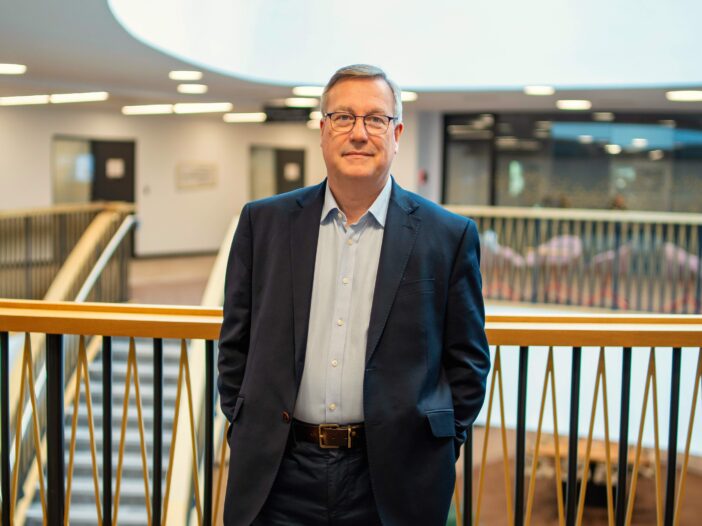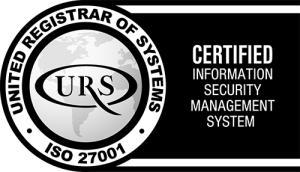TREAT-NMD are proud to announce its pivotal role as one of nine international partners in a transformative multi-million-pound programme poised to redefine the use of patient data in enhancing decision-making for rare diseases.
As a spin-out of Newcastle University, TREAT-NMD has been actively fostering collaboration within the scientific and medical community to improve care and develop novel treatments for people living with neuromuscular conditions like Duchenne muscular dystrophy (DMD), Becker muscular dystrophy (BMD), facioscapulohumeral muscular dystrophy (FSHD), and spinal muscular atrophy (SMA).
As the Scientific Co-ordinator, working in collaboration with global partners across Europe and the US, including Newcastle University and advocacy groups like Duchenne UK, TREAT-NMD introduces a new €21 million (£18 million) project: The Patient Lifestyle and Disease Data Interactium (PaLaDIn).
David Allison, CEO of TREAT-NMD, will detail the project’s objectives and anticipated impact at an upcoming conference in Italy this Saturday. Following engagements include meetings with the US-based patient advocacy group, the FSHD Society, in Chicago later this month. The project’s unveiling precedes Rare Disease Day on February 29th, dedicated to raising awareness for those affected by rare diseases. Additionally, a PaLaDIn project kick-off meeting is scheduled to take place in Rome on March 11th – 12th, bringing together all project partners.
Funded by the Innovative Health Initiative (IHI), with contributions from the FSHD Society, TREAT-NMD, and UK Research and Innovation, the ‘Interactium’ represents a significant advancement in rare disease research. By seamlessly integrating various sources of patient data, including Patient Reported Outcome Measures (PROMS), patient preferences, and data from registries and wearable devices, this four-year project is poised to provide invaluable insights.
Anticipated outcomes include support for novel drug development, enhancement of PROMS, and the provision of essential information to inform healthcare decision-making at all levels. Furthermore, the project’s findings will be disseminated widely, benefiting professionals working across various rare disease domains, through the provision of tools and training materials.
David expressed his enthusiasm for the PaLaDIn launch, stating, “Our mission is to advance treatment, diagnosis, and care for rare neuromuscular disease patients worldwide. PaLaDIn enables collaboration with our international partners to transform how we understand, diagnose, and treat these diseases, ultimately delivering the very best care for patients.”
He continued, “One of the biggest challenges we face in the rare disease sector is the lack of patient data. PaLaDIn is designed to tackle exactly that challenge, working with patients, healthcare professionals, and researchers to collate impactful data that can make a big difference in diagnosis and treatment.”
Keith Robson, from Middlesbrough, is a parent of a son with Becker muscular dystrophy, and shares his view on what TREAT-NMD and the PaLaDIn project means for families like his:
“As a parent of a child with Becker muscular dystrophy, I’m excited about PaLaDIn’s potential to improve data collection and understanding of neuromuscular diseases. For families like ours, every step forward matters. Sharing our experiences and data can lead to more informed treatment decisions, and hopefully future advancements for those living with neuromuscular conditions now and in the future.”
Alessandra Gaeta, Head of Research and Development at Duchenne UK, added:
“Duchenne UK is proud to be a partner in the PaLaDIn project. By collecting new data from patients with rare neuromuscular diseases through the state-of-the-art data collection platform we’re creating, we will transform how rare diseases are treated. The data will support trials for new therapies, inform improvements in care, and help research and access to new treatments.”
“It will also have a significant impact beyond neuromuscular diseases. It will be a model for other diseases too.”
This groundbreaking approach to enhancing healthcare decision-making will draw upon learnings from existing programmes and projects in DMD and FSHD and translate this knowledge into other disease areas. Throughout the project, outputs including new datasets, Standard Operating Procedures (SOPs), frameworks, and PROMS will be widely disseminated to the rare disease field and beyond.
Neuromuscular disease patients, healthcare professionals, or researchers interested in participating in the project are invited to contact the TREAT-NMD team by visiting www.treat-nmd.org and emailing info@treat-nmd.com.


